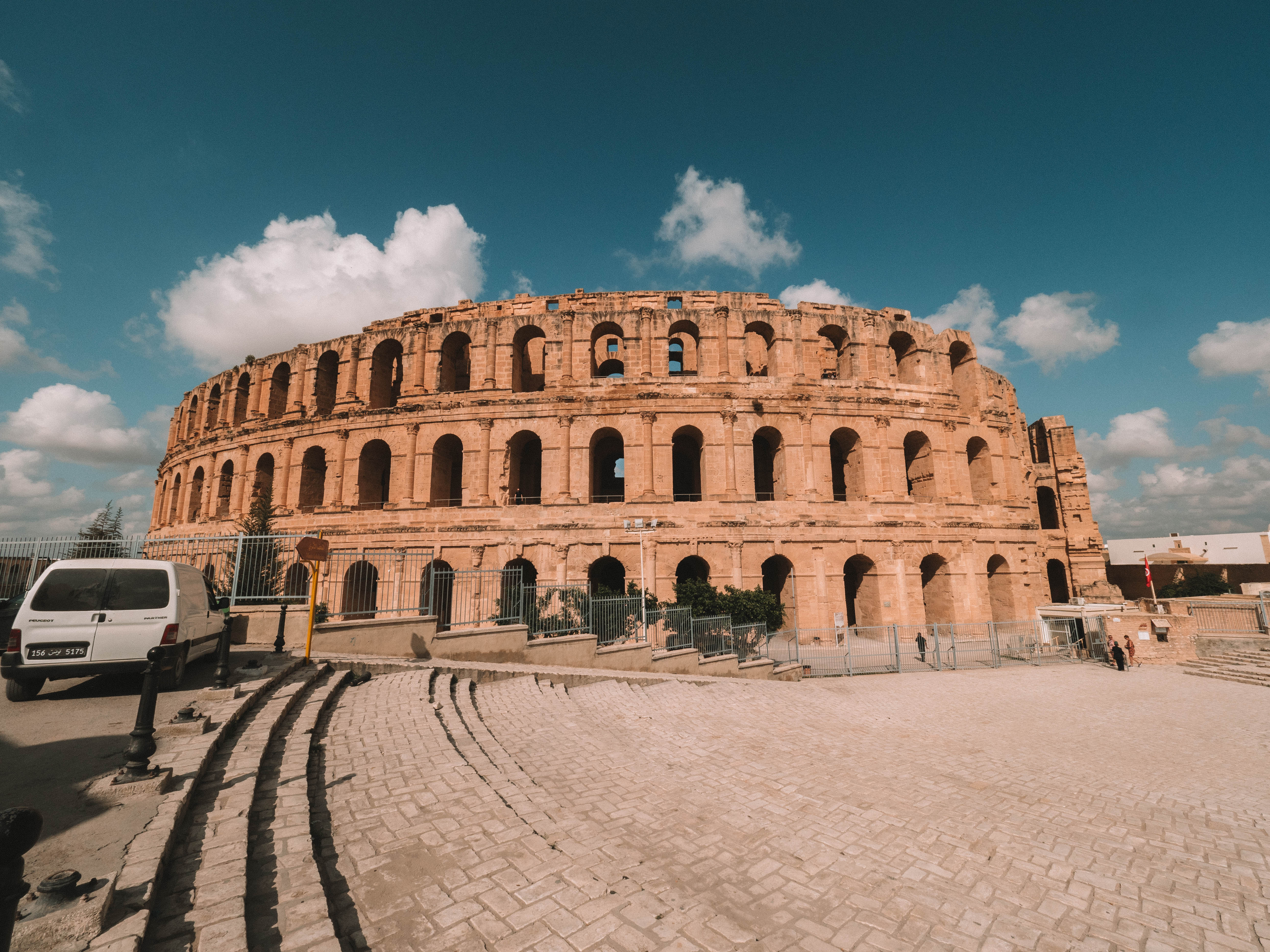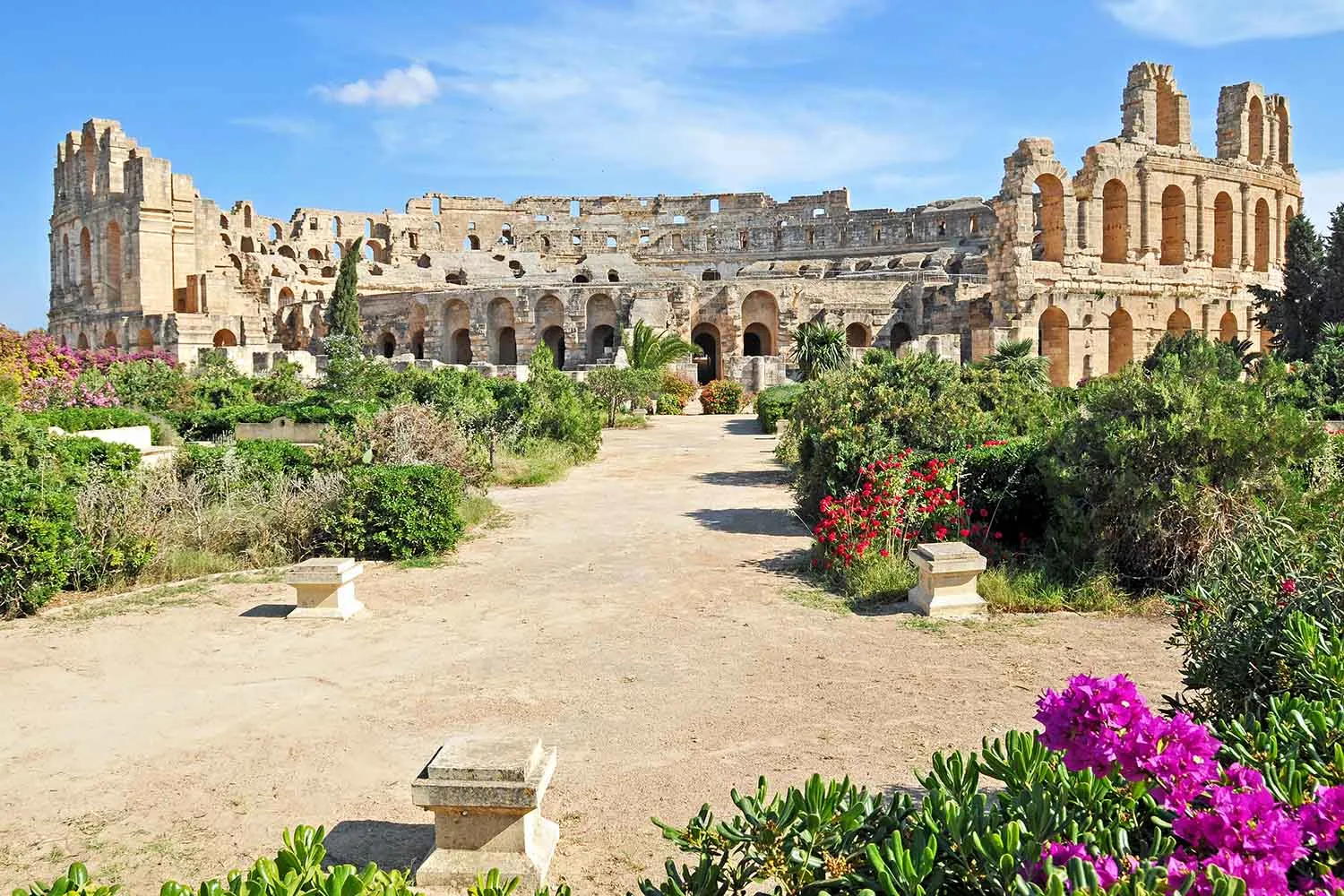



El Djem or El Jem is a town in Mahdia Governorate, Tunisia. Its population was 21,544 at the 2014 census. It is home to Roman remains, including the Amphitheatre of El Jem. Wikipedia
Spring (March to May) and Autumn (September to November) are ideal.
Mild temperatures (~20–26°C)
Avoids the extreme summer heat and peak tourist crowds.
Summer (June–August) is very hot (up to 40°C) but still popular for those who enjoy dry desert-like heat.
By Train: Regular trains from Tunis, Sousse, and Sfax. El Djem is on the main rail line between Tunis and Sfax.
By Bus or Louage (shared taxi): Available from nearby cities like Mahdia, Sousse, and Sfax.
By Car: Renting a car allows flexibility—roughly 3 hours from Tunis via A1 highway.
El Djem Amphitheatre (UNESCO World Heritage Site):
One of the best-preserved Roman amphitheaters in the world.
El Djem Archaeological Museum:
Features Roman mosaics and artifacts from the surrounding area.
Ancient Roman Villas (nearby ruins):
Foundations and mosaic floors of once-luxurious homes.
Medina of El Djem (small but charming):
Walk through traditional shops and old streets.
Explore the Amphitheatre: Climb to the top or walk through the underground passages.
Photography: Great light during sunrise/sunset on the ancient stonework.
Mosaic spotting: Inside the museum and scattered among ruins.
Attend a classical music concert or opera (occasionally held in the amphitheater during summer).
Hotel Julius – Simple, comfortable hotel close to the amphitheater.
Maison d’Hôte Dar Eljem – Traditional guesthouse with Tunisian decor and personal touches.
Nearby cities like Sousse or Mahdia offer a wider range of hotels if you're doing a day trip.
Restaurant Le Bonheur – Traditional Tunisian dishes like couscous and brik.
Café El Amra – Near the amphitheater; good for snacks and mint tea.
Try Tunisian specialties:
Couscous with lamb or fish
Ojja (spicy egg and tomato stew)
Harissa (spicy paste)
Local pastries with dates and almonds
El Djem reflects Tunisia’s rich Roman and Berber heritage.
The town is quiet and traditional—modest clothing is appreciated.
Locals are friendly and welcoming, especially in markets and cafés.
Arabic and French are widely spoken.
Friday is the holy day; some businesses may close early.